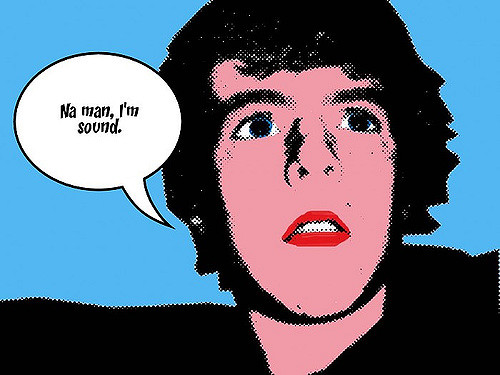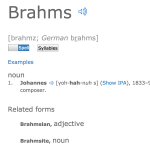(3 min read) This one’s for Dave. Thank you for asking me to write it.
So this post? We were sitting next to each other in an airport cafe eating pizza before catching our flights to our respective homes after a conference and we were talking about different forms of communication.
I have always been curious about perception and connection, and really being able to know someone. I think most people crave connection in life – no matter where you’re from, what flavour of life – the only exception I have come across was in a book by Colin Turnbull called The Mountain People and it was so dark I couldn’t finish it. (I suggest you read the happy counterpart about another culture: The Forest People Both books were part of an undergrad class taught by Paul Berliner.)
Whether it is someone or something, communication is essential to our everyday lives and especially to learning. As teachers our job is to communicate and that is about introducing the new, illuminating something unseen, feeding back, encouraging, acknowledging, criticising, celebrating.
So many things.
Words are great. -and writing, and speaking, but communication is more than that. If you see me in a big room (like the conference I was at last week) I tended to sit at the back, almost alone. I find it hard to ‘know’ people in a crowd. Everyone uses words and I can’t quite process all the other missing stuff – the non-talking that tells so much. It’s different in music though. Here’s an example of how words are not always at the forefront:
I play the cello, and am very lucky to have worked with the same pianist for 18 years. He knows me musically very well. We were playing Shostakovich in this image taken by Andrew Worsfold:
Off the stage we get along fine, in fact he’s my boss, but the last time he was at my house socially for a meal was 12 years ago. The point is that we aren’t chummy friends who hang out all the time.
That said, we play Brahms he knows my every move and catches me and sings with me- allows me time to breathe and supports what I am saying with my cello. And you know, we hardly need to speak – even in rehearsals. There is something about having the luxury of not using words that is so very liberating. I enjoy breathing and using tiny gestures to show what I mean. Leaning into the sound and having room to express without being tied to someone else’s definition of Brahms. Image source
Is it because of the interesting ambiguity of music? Maybe that ambiguity is a fanciful dream. There are sources where researchers have drawn connections with music and words, like in this article from the journal Nature. It is all about how the brain links emotions with music and the bit I love (and use with my students as a discussion starter) is the link to the musical works and the two different words… So if you play Schönbers’s String trio op 45, more people associate it with the word ‘needle’ than ‘river’, which makes sense as the composer was describing stitches during his heart attack. what?!!? (sorry, that’s pretty ick. I am not kidding though. Read the article.)
But seriously, how do we know, and what does it mean, and why am I so comfortable that way- speaking through music?
I have had students say to me that if they get an email, it is possible to be confuses as to what the person means (whether from a teacher or peer), and so they have asked me for written and video feedback so they can have the facial expression and inflection that goes with the typed words. The whole picture is important, all of the clues in communication. I do think words can be extremely expressive, but it takes skill to make sure you can be understood as you intend – and then how do you really know?
Perhaps that’s the magic of music. You can be understood and it doesn’t have to be any specific way, and there is no real expectation to tell people. It is certainly possible that there is some sort of truths inherent in the music that come through in performance – maybe it is the essence of Brahms that unites me and my accompanist. Regardless, it is liberating that I can experience the music as I like, and we don’t have to talk about it. It is public and private at the same time.
I’m sure it’s not just music – I’ve experienced it with other disciplines too, usually where someone is very very skilled and they are doing their ‘craft’, whether that is something physical they create or a more abstract creative process- and you are somehow let in to that space. For me that is communication.
Are words the same? I’m not sure
Featured image CC BY-NC by Olly Farrell and just to say- for me that image is saying I am sound, not words.


Words are not the same.
Music is music.
The arts help us to express. Each art offers its own lexicon.
I love that- ‘each art offers it’s own lexicon’, and there are moments when different arts intersect. It’s a bit like meeting a tropical fish for the first time while scuba diving – magic, another world, and I’m very sure that those meeting in that moment each experience and understand it completely differently.
I lean into the sound:
navigating by the waves
your fingers create on strings,
pulsing into my ears,
and we hear these things, together
in the gaps between notes and
melody and harmony,
a subtle understanding
others might only notice
as silence.
–Kevin, lifting a line from your wonderful post to build a poem about musician and audience, perhaps. I think how people communicate is fascinating, and frustrating at times, and forever something that we are exploring on many different levels. Thank you for the post and for the line.
What an amazing gift ! Thank you Kevin.